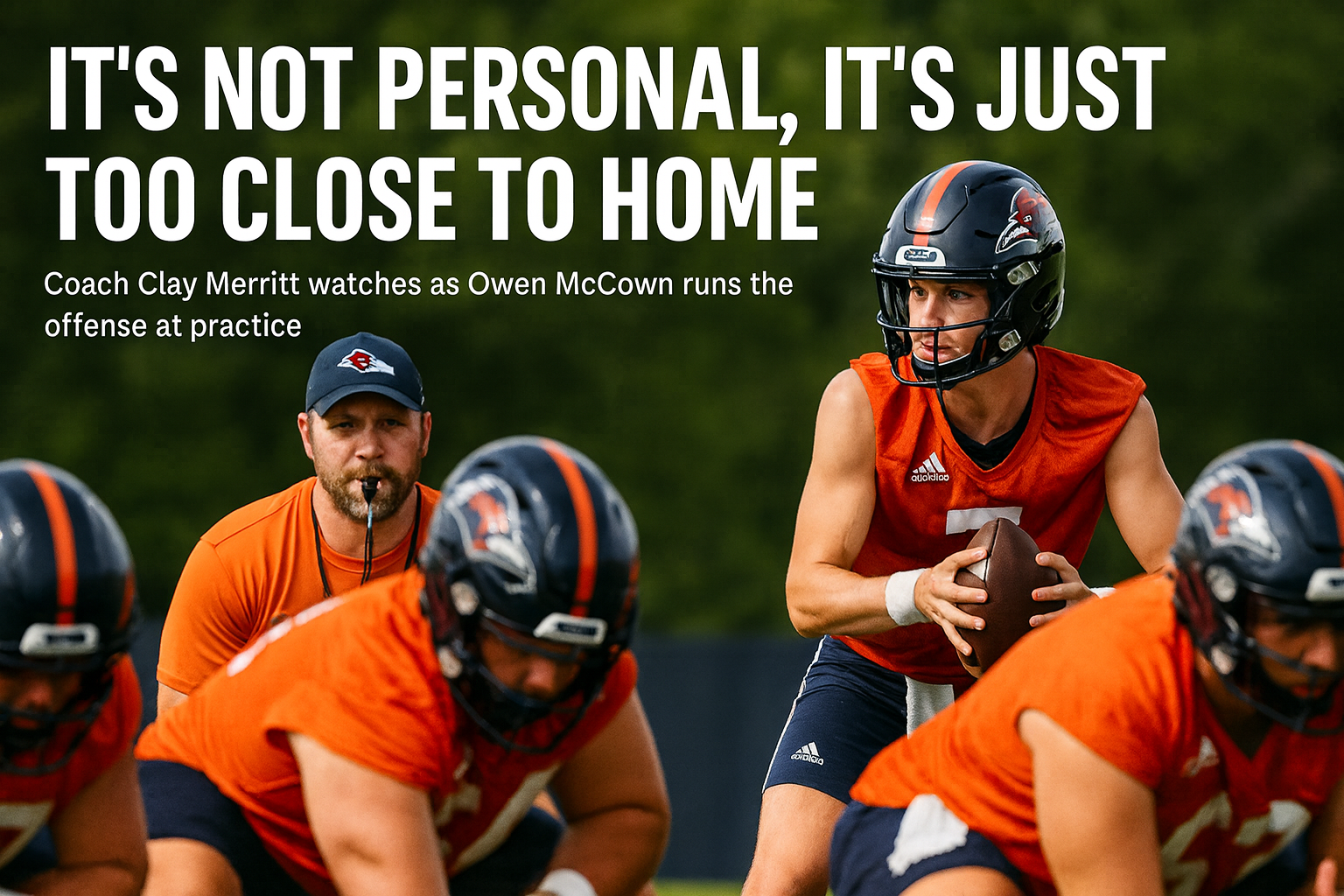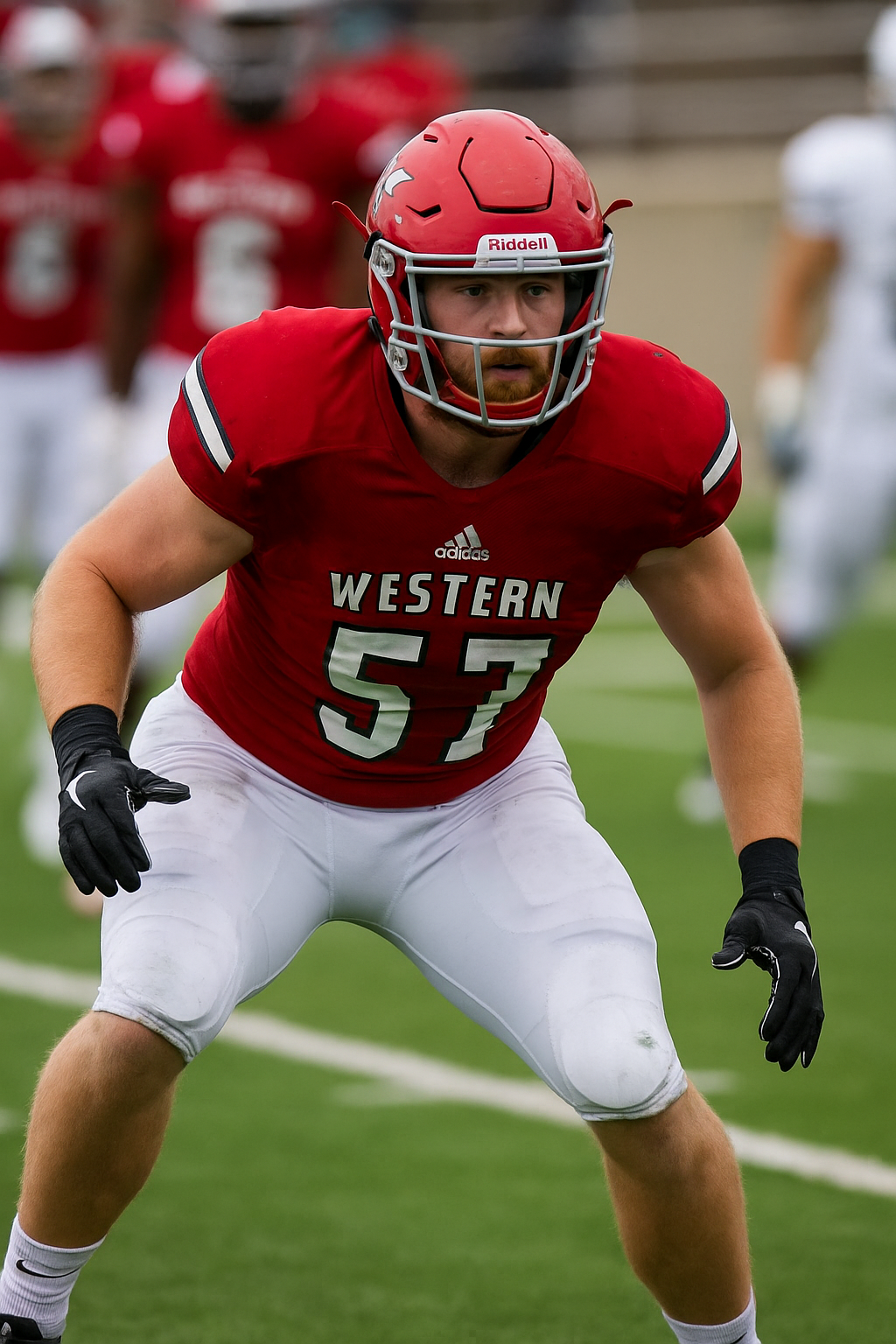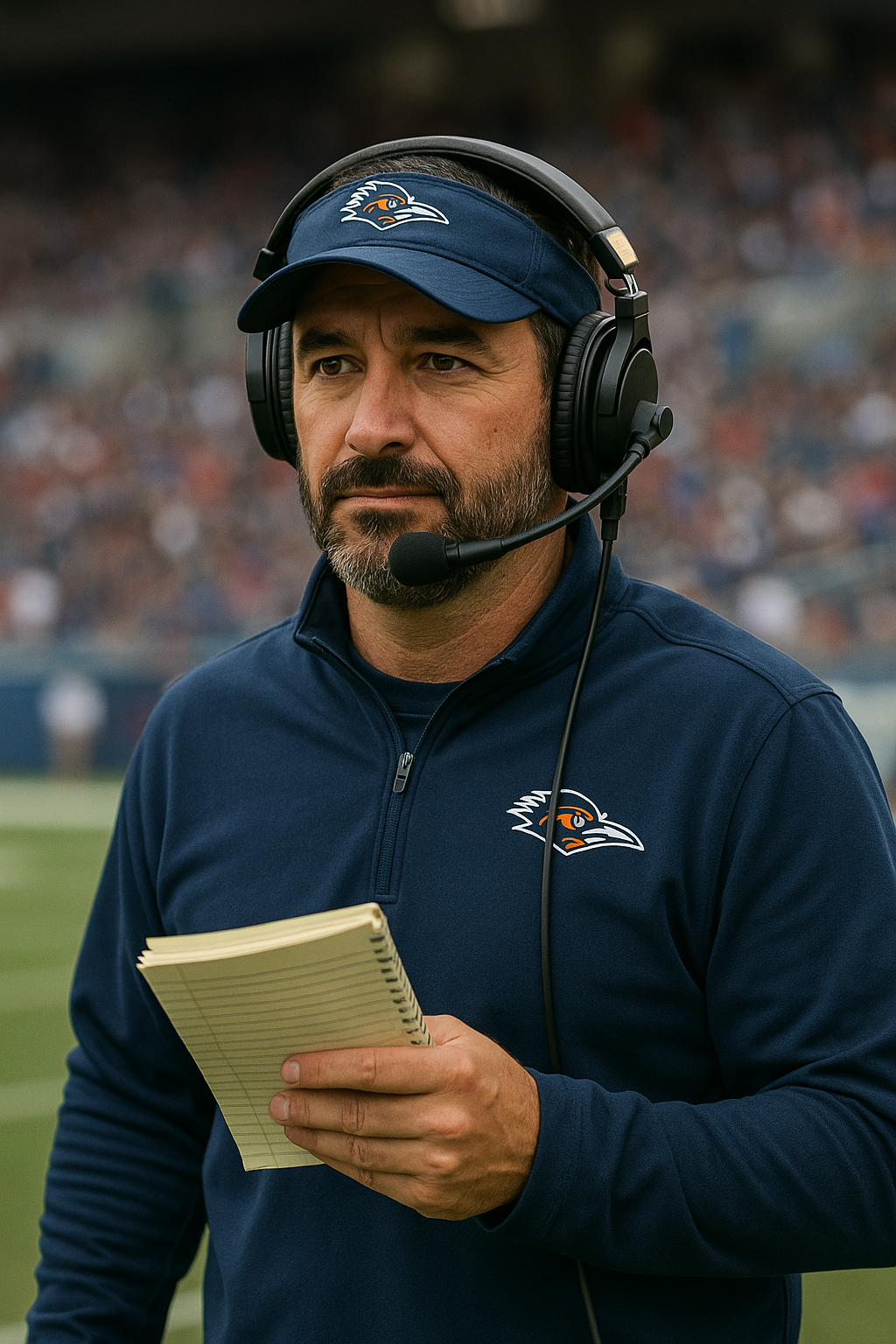Its Not Personal, It's Just Close to Home: How Does Clay Merritt Feel About Returning to His Home State as the coach of the Undefeated UTSA Roadrunners

It's Not Personal, It's Just Close to Home: How Does Clay Merritt Feel About Returning to His Home State as the Coach of the Undefeated UTSA Roadrunners
📌 Disclaimer:
The following post is a work of fiction created for entertainment purposes within the video game universe of College Football 26. All characters, events, and storylines — including Coach Clay “Stonewall” Merritt, Frankie “The Horn” Calderón, and their journey with the UTSA Roadrunners — are entirely fictional and not affiliated with the NCAA, UTSA, or EA Sports. This series is fan-made and meant to celebrate the spirit of college football storytelling.
Returning to the Centennial State
As I’ve come to expect, whenever Clay Merritt speaks, there’s always a pause. Not the kind of pause that makes you squirm in your seat, but a thoughtful, measured silence. It took some time for a fast-talking, loud radio guy like me. Merritt isn’t here to overpower you with volume or to wow you with slick words. He tells the truth in his way, and if you want more, you’d better hope he’s in a giving mood.
So when we sat in what is now dubbed Stonewall’s Corner—a back booth at the Roadrunner Café, steaming coffee mugs in hand—I jumped right in.
“Coach, going back to Colorado, your home state, where you lived most of your football journey—does it make this one personal? A state that once overlooked you, that forced you to travel 1,000 miles just to get your shot at Division I…is it personal now?”
For a brief moment, I thought I hit a nerve. He lowered his mug from beneath that auburn beard and finally replied.
“I wouldn’t say it’s personal, but it is close to home.”
Matter-of-fact on the surface, but for anyone who’s spent time around Clay Merritt, you know that line runs deeper. He leaned back and continued.
“Sure, I would’ve liked to play at CU or CSU when I played for my pop at Rifle. But those opportunities never came. It’s not their fault—they’re busy chasing the big names and five-stars that look good on a scale or a measuring tape. That was never me. I’ve always been about working with what you’ve got, building greatness where no one thought it could exist.”
Just as he finished, our waitress arrived with breakfast, giving us a moment to chew on his words.
Get In Where You Fit In
If you know the backstory of Coach Merritt, you remember his playing days at Western Colorado University in Gunnison. In the 1990s, the Mountaineers won eight Rocky Mountain Athletic Conference titles. But by the early 2000s, the program had slipped to rock bottom. Talks of dropping football down to Division III—or even the NAIA—were real.
That’s when Merritt came along. A hard-nosed linebacker from the southern Rockies, he played with the discipline and calm that earned him the nickname Stonewall. After finishing his degree and eligibility, he carried that demeanor into coaching. Soon, Western climbed back to the top of the RMAC, and suddenly CU and CSU realized they’d overlooked a guy who lacked star ratings but had grit, leadership, and the ability to change a program’s culture.
I followed up: “Coach, was there ever a point when you thought about taking over one of the D-1 programs in Colorado?”
He didn’t hesitate.
“Honestly, I don’t know if I fit their mold. CU went out and got Coach Prime—a Hall of Famer who thrives on telling you how great he is, and to his credit, he’s changed their whole narrative. That’s just not me. I get uncomfortable if I have to sit here and sell myself. None of this happens without the 22 guys on the field, the 100+ players in the program, or my staff. If they don’t buy in, I’m not the guy for this job.
“I see much of myself in what Jay Norvell’s trying to build at CSU. That’s why it was an easy yes when we had the chance to put them on our schedule.”
What Do We Know About the Colorado State Rams?
The Rams have always been the so-called “little brother” of FBS football in Colorado. Based in Fort Collins, about an hour north of Denver, CSU feels more like a small town than a big-time program. They’ve had their moments—two Mountain West Conference titles (1999, 2002) under Sonny Lubick, with gritty players like Bradley Van Pelt embodying the battering ram mentality of the green and gold.
Since 2021, Jay Norvell has been trying to restore CSU’s edge. His most significant moment so far came in 2023, when his Rams squared off against CU in a nationally televised rivalry showdown. Over 9.3 million viewers tuned in on ESPN—the most-watched late-night college football game in the network’s history. It was blue-collar CSU against flashy CU, and the entire country watched.
Fast-forward to this season: the Rams dropped their opener at Washington by a touchdown, then bounced back before an early bye. Saturday’s matchup with UTSA will be their third game of the season. Like every Colorado team, they’ll rely on elevation—over 4,300 feet higher than San Antonio—to tilt the field.
How will Norvell use it? That’s the mystery.
Merritt had his answer:
“Honestly, the mental work we put in this offseason will carry us to elevation. I believe in stoicism, and my favorite lesson from Epictetus is this: you’re the captain of your vessel. You can’t control the seas or storms, but you can chart the best course. That’s how I coach. We don’t control everything, but control enough to dictate our destiny.”
Frankie’s Final Horn
We’ve spent the past few weeks diving into numbers, and they’ve been good. But this story—the rise of the UTSA Roadrunners—isn’t about stats alone. It’s about the man at the helm.
Clay Merritt has already proven he can do the impossible, reviving Western Colorado from the brink. Now, with UTSA undefeated, the next test is looming: can his team stay disciplined, keep their emotions in check, and steer their ship through another storm?
If they can, as Merritt himself says, “greatness where no one thought it was possible” may soon belong to the Roadrunners.








